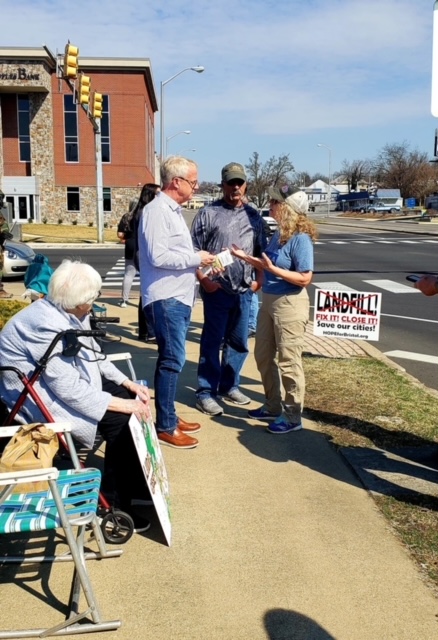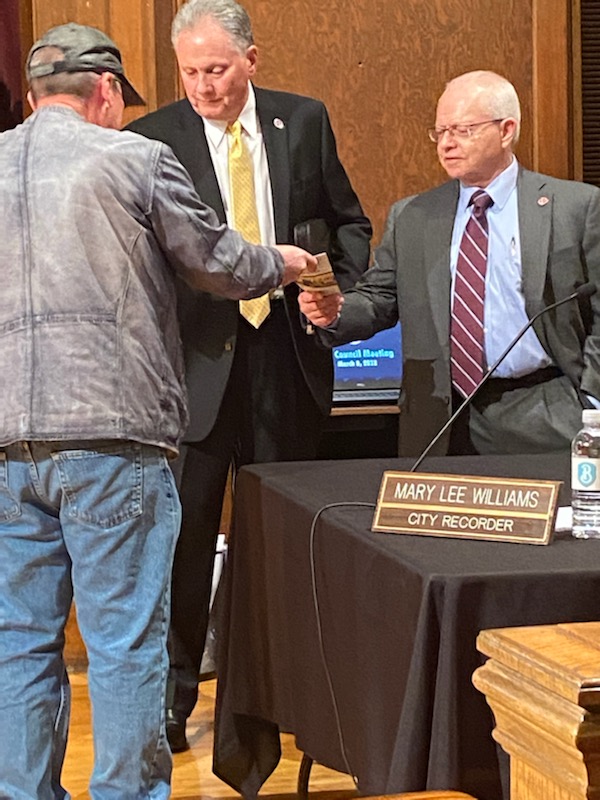Sign up for The Media Today, CJR’s daily newsletter.
In 2020, Sarah Wade moved to Bristol, Tennessee, to work at the Bristol Herald Courier, a small newspaper whose recent accolades included a Pulitzer Prize for Public Service and a Scripps Howard Award for Community Journalism. “I was kinda blown away by how much they did,” Wade said. Plus: “There’s a lot happening environmentally in the state.” The Herald Courier’s coverage zone included Bristol, Virginia, which meets its sister city’s border at a sign that proclaims each Bristol “a good place to live.” Soon, however, Wade began hearing complaints about a landfill just a few miles from the sign. The landfill had a stench that reached residents in both cities—“slipping through fences,” she wrote, “wandering across yards and fields, finding its way into houses through chinks in windows and doors.”
Officials have attributed the air pollution to an ongoing chemical reaction beneath the landfill’s surface. In a Facebook group, Bristol residents logged their reactions—headaches, throat and eye irritation, nausea. Though local, state, and federal authorities investigated the landfill and tested the local air quality, the problems continued. Wade published several stories about the landfill for the Herald Courier; last August, she went freelance, and stayed on the case. Late last year, she published her most comprehensive piece: a three-thousand-word reported feature on the landfill and delays to remedial efforts, including “recordkeeping failures and poor communication between city staff and consultants.” The story appeared in Southerly, a nonprofit digital news outlet. The piece was well-received online. But Wade wanted to make sure her reporting made an impact locally.
After publication, Southerly held a community listening session, where attendees told Wade that “many of their neighbors—particularly Black residents, elderly, and low-income residents living close to the landfill—don’t have internet access or aren’t on social media.” As she wrote in a post for Southerly, “Some of the grassroots leaders said they spend a lot of time just trying to explain what’s happening at the landfill to people who haven’t heard much about it yet, but are feeling the effects of the air pollution.”
So Wade and Southerly went about boiling down her reporting to a few core sections—a history of the landfill, a list of chemicals found in air samples, a guide for directing complaints to local and state officials—producing a trifold pamphlet for local distribution. Bristol residents “don’t necessarily have time to read huge stories that can explain every nook and cranny of what’s happening,” Lyndsey Gilpin, Southerly’s publisher and executive editor, said. The aim was to reach those people offline.
In February, Wade received a box containing a hundred and fifty pamphlets. She made a list of distribution sites, including a public library, a doctor’s office near the landfill site, churches, and thrift stores. Then she passed the pamphlets out—“definitely new territory for me,” she said. Some business owners turned her away, saying the pamphlets were “too political.” But a number of their employees—people who lived near the landfill—asked for copies.

HOPE for Bristol distributes pamphlets produced by Southerly featuring reporting by local journalist Sarah Wade. Photo used with permission.
Boxes of pamphlets also went out to other community members, including volunteers with hope for Bristol, an organization dedicated to closing the landfill, and to the Reverend Steven Davis, the president and founder of Brothers for Christ Community Response, who participated in Southerly’s community listening session. “I’ve been passing pamphlets out to my family members, reading them, helping them to understand what’s going on,” Davis said. His mother lives just south of the landfill; her vision is limited, so Davis read the pamphlet to her. “She’ll be able to speak because we were able to get the pamphlets out to individuals such as herself.” On Facebook, locals have discussed additional distribution sites for the pamphlets, including at a local university.

Pamphlets handed out during a city council meeting in Bristol, Tennessee. Photo used with permission.
Local concern over the landfill persists; at the end of this month, a panel convened by the Virginia Department of Environmental Quality will publish a final technical report detailing recommendations for the site. Wade won’t be there to cover it—at least, not in person; she recently left Bristol for Raleigh, North Carolina. But residents will continue to use her pamphlet to pressure officials. hope for Bristol plans to print more copies. “Southerly definitely filled a gap for us, to help us communicate to our residents and leaders during a time when we were scrambling to do so much at once, and with very little experience on our side,” a hope for Bristol member wrote recently to Wade and Gilpin.
For Wade, the project was revelatory. “You know, reporting can look like a big long investigative feature,” she said. “And it can also look like the kind of pamphlet you normally associate with, like, the YMCA.”
Has America ever needed a media defender more than now? Help us by joining CJR today.



